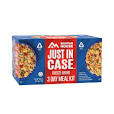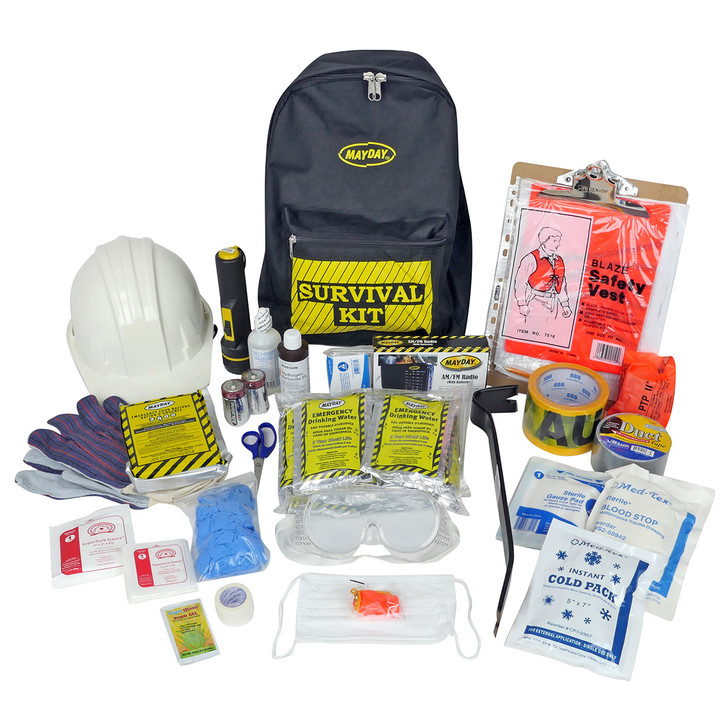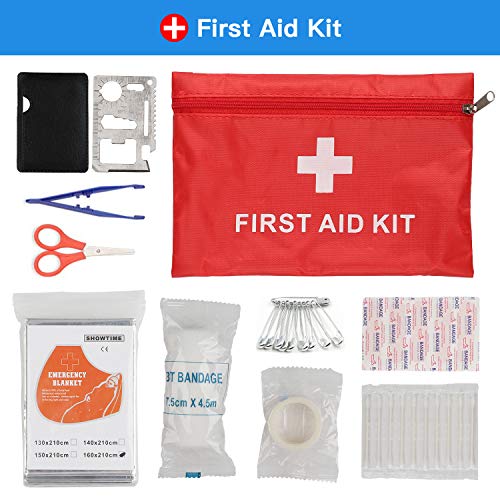The Importance of Survival Food: Ensuring Your Preparedness
In times of emergencies or natural disasters, having access to proper nutrition is crucial for survival. This is where the concept of survival food comes into play. Survival food refers to non-perishable items that are specially designed to have a long shelf life and provide essential nutrients to sustain individuals in challenging situations.
Key Benefits of Survival Food
Long Shelf Life: One of the primary advantages of survival food is its extended shelf life. These items are typically freeze-dried or dehydrated, allowing them to be stored for long periods without spoiling.
Compact and Portable: Survival food is often lightweight and compact, making it easy to store and transport. This makes it ideal for emergency kits, bug-out bags, or evacuation plans.
Nutrient-Dense: Despite their long shelf life, survival foods are designed to be nutritionally balanced, providing essential vitamins, minerals, and macronutrients needed for energy and overall health.
Types of Survival Food
There are various types of survival food available on the market, including:
- Canned goods
- Dehydrated fruits and vegetables
- Meal replacement bars
- Emergency ration packs
- Freeze-dried meals
- Powdered drink mixes
Preparing Your Emergency Food Supply
To ensure your preparedness in case of emergencies, consider creating an emergency food supply that includes a variety of survival food options. Rotate your stock periodically to maintain freshness and check expiration dates regularly.
In addition to survival food items, include other essentials such as water, cooking supplies, utensils, and a manual can opener in your emergency kit. Customize your supply based on the needs of your household and any specific dietary requirements.
Final Thoughts
Survival food plays a critical role in ensuring your readiness for unexpected events that may disrupt access to regular sources of nutrition. By investing in quality survival food products and maintaining an updated emergency supply, you can increase your chances of staying nourished and resilient during challenging times.
Essential FAQs About Survival Food: Types, Storage, Shelf Life, and Dietary Considerations
- What is survival food?
- How long does survival food last?
- What are the best types of survival food to stockpile?
- How should I store survival food properly?
- Are there any dietary considerations when choosing survival food?
What is survival food?
Survival food refers to non-perishable food items that are specially designed and packaged to have a long shelf life, making them ideal for emergency situations or disaster preparedness. These foods are often freeze-dried, dehydrated, or canned to ensure they remain edible for an extended period. Survival food is a crucial component of emergency kits, bug-out bags, and disaster supply caches, providing individuals with essential nutrients and sustenance when access to fresh food may be limited or unavailable. By stocking up on survival food items, individuals can better prepare themselves for unforeseen events and ensure their nutritional needs are met during times of crisis.
How long does survival food last?
When it comes to survival food, a commonly asked question is, “How long does survival food last?” The shelf life of survival food can vary depending on the type of food and how it is stored. Generally, most survival food items are designed to have a long shelf life, often ranging from several years to decades. Proper storage conditions, such as keeping the food in a cool, dry place away from sunlight and moisture, can help extend its longevity. It is important to regularly check expiration dates and rotate your emergency food supply to ensure that you have fresh and reliable provisions in case of emergencies.
What are the best types of survival food to stockpile?
When considering the best types of survival food to stockpile, it is important to prioritize items that are non-perishable, nutrient-dense, and easy to store. Canned goods such as beans, vegetables, and meats are excellent options due to their long shelf life and versatility. Dehydrated fruits and vegetables provide essential vitamins and minerals while occupying minimal space. Meal replacement bars and emergency ration packs offer convenient, ready-to-eat options for quick sustenance. Freeze-dried meals are lightweight and require minimal preparation, making them ideal for emergency situations. Ultimately, a well-rounded stockpile of survival food should include a variety of items to ensure nutritional balance and flexibility in challenging circumstances.
How should I store survival food properly?
Proper storage of survival food is essential to maintain its quality and effectiveness for emergencies. When storing survival food, it is important to keep it in a cool, dry place away from direct sunlight and extreme temperatures. Optimal storage locations include a pantry, basement, or dedicated emergency food supply area. Ensure that the containers or packaging are airtight to prevent exposure to moisture and pests. Rotate your stock regularly by using older items first and replacing them with fresh supplies to maintain the shelf life of your survival food. Following these storage guidelines will help ensure that your survival food remains safe and reliable when you need it most.
Are there any dietary considerations when choosing survival food?
When selecting survival food, it is important to consider dietary requirements to ensure that individuals receive adequate nutrition during emergencies. Factors such as allergies, dietary restrictions, and specific health conditions should be taken into account when choosing survival food items. Opting for a variety of options that cater to different dietary needs, including gluten-free, vegetarian, or low-sodium choices, can help meet the diverse nutritional requirements of individuals in challenging situations. Additionally, prioritizing nutrient-dense and balanced meals can support overall health and well-being during times of crisis.




